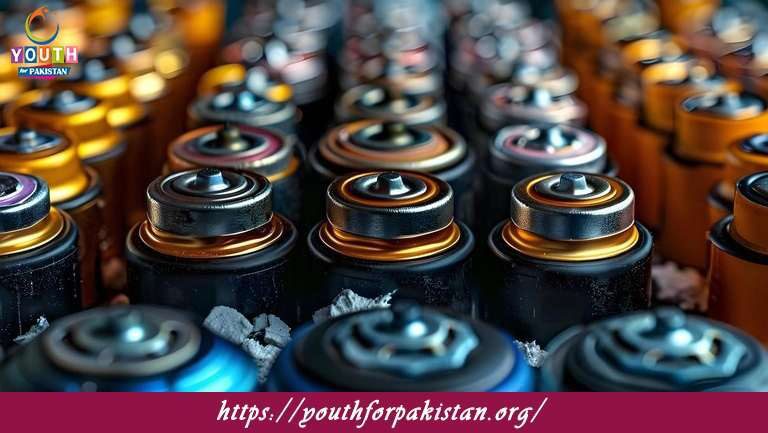9th Class Chemistry Chapter 7 Quiz with Answers

“9th Class Chemistry Chapter 7 Quiz: Electrochemistry” is the study of intriguing chemical reactions involving the transfer of electrons. This chapter is very important for MDCAT students since it discusses in detail the ideas concerning energy production and chemical processes occurring in biological systems. Our MDCAT Quiz for this chapter is designed to help students master these concepts and prepare for the exam.
In this chapter, students will learn the principles of oxidation and reduction reactions that involve electron transfer. The chapter also discusses electrochemical cells, which include galvanic cells and electrolytic cells, and their applications in energy production. The Nernst equation, standard electrode potential, and construction of electrochemical cells are the key topics of this chapter. The chapter also explores Faraday’s laws of electrolysis, which describe the relationship between the amount of substance deposited or dissolved at an electrode and the amount of electric charge passed through the electrolyte. Knowledge of electrochemistry is important in explaining phenomena like corrosion, the functioning of a battery, and biological processes such as respiration.
MDCAT Quiz: Master Electrochemistry Concepts
Our MDCAT Quiz for Chapter 7 is designed to test your understanding of crucial electrochemical concepts, including the process of oxidation-reduction reactions, electrochemical cell construction, and Faraday’s laws. These quizzes are based on MDCAT standards and will help you practice problem-solving in electrochemistry. Regular practice will solidify key concepts and enhance your ability to solve problems, ensuring you’re ready for the exam.
- Test Name: 9th Class Chemistry Chapter 7 Quiz
- Type: Quiz Test
- Total Questions: 30
- Total Marks: 30
- Time: 30 minutes
Note: Answer of the questions will change randomly each time you start the test, once you are finished, click the View Results button.
Free Flashcards for Electrochemistry
Enhance your preparation with free flashcards for Chapter 7. These flashcards focus on critical terms like oxidation, reduction, electrochemical cells, standard electrode potential, and Faraday’s laws, providing an efficient way to review and memorize key information. Flashcards are a great tool for reinforcing important concepts and improving retention.

What is the process of using electricity to convert chemical energy into electrical energy?
Galvanic cell

What is the term for the ratio of the actual voltage of a cell to its standard cell potential?
Cell efficiency

Which of the following metals is commonly used as a reference electrode in electrochemistry?
Platinum

What is the term for the reduction potential of an electrode measured against a standard hydrogen electrode?
Standard reduction potential

What is the process of using electricity to coat a metal object with a thin layer of metal called?
Electroplating

What is the term for the maximum potential difference between the cathode and anode in an electrochemical cell?
Cell potential

What is the electromotive force (EMF) of a cell under standard conditions called?
Standard cell potential

What is the formula for calculating cell potential under standard conditions?
E°cell = E°cathode - E°anode

What is the term for the electrode potential of a half-cell measured against a standard hydrogen electrode?
Standard electrode potential

What is the process of preventing corrosion of a metal by applying a protective layer of another metal?
Galvanization

What is the process of using an external source of electric current to force a non-spontaneous chemical reaction?
Electrolysis

Which of the following is a measure of a material's opposition to the flow of electric current?
Resistance

What is the process of depositing a thin layer of metal onto a surface using electricity?
Electroplating

What is the term for the movement of ions in solution under the influence of an electric field?
Electrolysis
Experience the real exam environment with our expertly designed collection of over 25,000 MCQs MDCAT Mock Tests.





